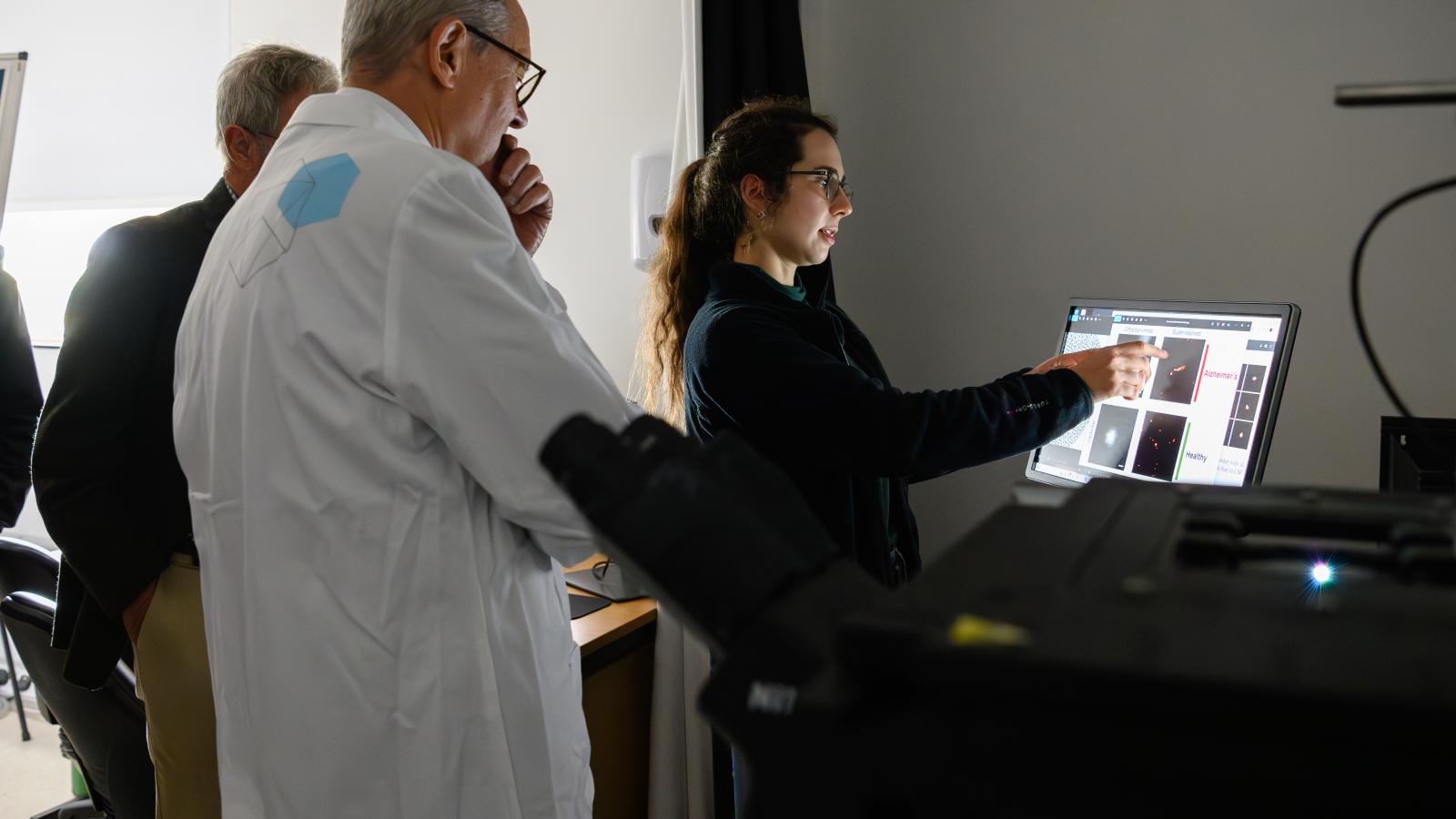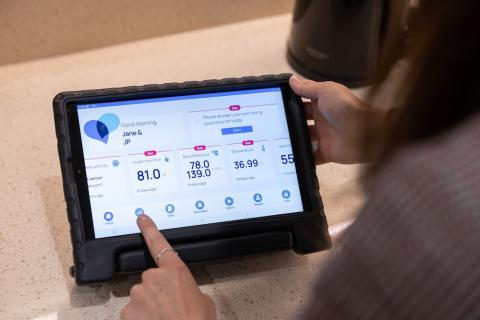We were delighted to welcome Science Minister Lord Vallance and Health Innovation Minister Zubir Ahmed MP to visit the UK DRI at Cambridge yesterday (Thursday 24 October).
The visit was hosted by Prof Siddharthan Chandran (UK DRI Director) and Prof Mina Ryten (Centre Director, UK DRI at Cambridge).
During the visit, Lord Vallance announced a new dementia challenge, backed by an initial £5m in funding for researchers and industry to develop solutions to dramatically increase the number of people receiving a timely formal diagnosis of dementia. The government aims that, by 2029, more than 92% of patients will be diagnosed within 18 weeks of a doctor’s referral.
On the visit, Minister Vallance and Minister Ahmed met UK DRI researchers specialising in a range of disciplines, including diagnostics and dementia therapeutics.
Few people in the UK will go through life untouched by the impact of dementia - whether through a personal diagnosis or in caring for, or coming to terms with, its effect on a loved one.
We must therefore grasp the opportunities that science and technology offers in getting people the early and effective diagnosis they need to continue living fulfilled lives while reducing the pressure on hospitals.
Lord VallanceScience Minister
Prof Sir David Klenerman showcased his research into dementia diagnostics, using cutting-edge technology used to support the early detection of biomarkers. Prof Will McEwan discussed the future of treatments and his work investigating new therapeutic approaches to clear toxic proteins in dementia.
As part of the £5m funding, Prof David Sharp (UK DRI Centre for Care Research & Technology) has been allocated £200k from the EPSRC, to accelerate the development and deployment of Minder, a suite of zero or low burden integrated digital technologies (ZeDTech) – including sleep mats, smart plugs, door and movement sensors – deployed in the home to support personalised detection and care for people at risk and living with dementia in their own home.
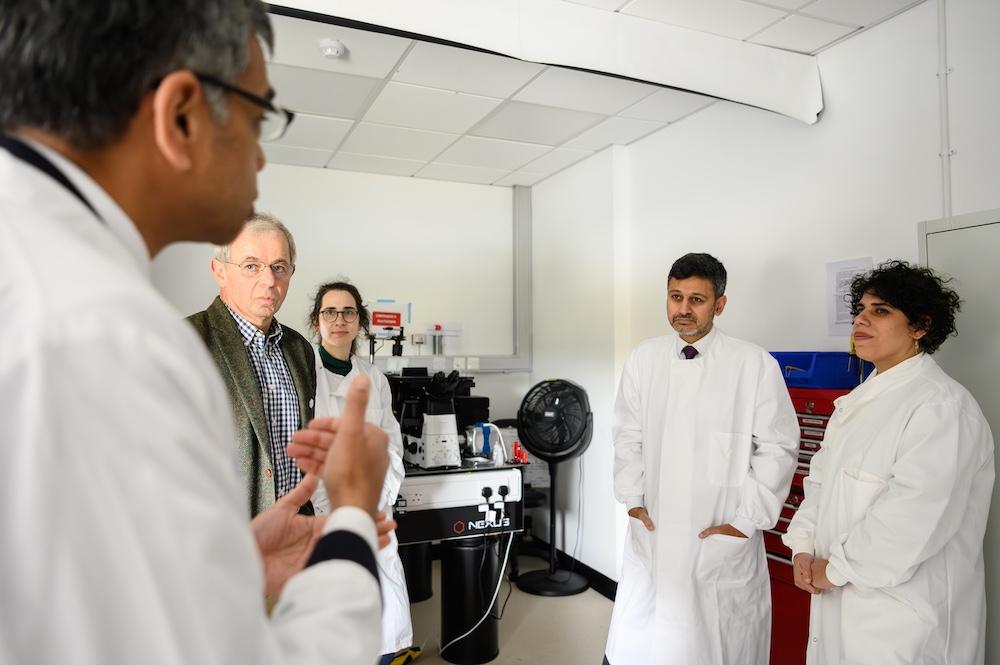
UK DRI researchers showcased their work to Minister Ahmed
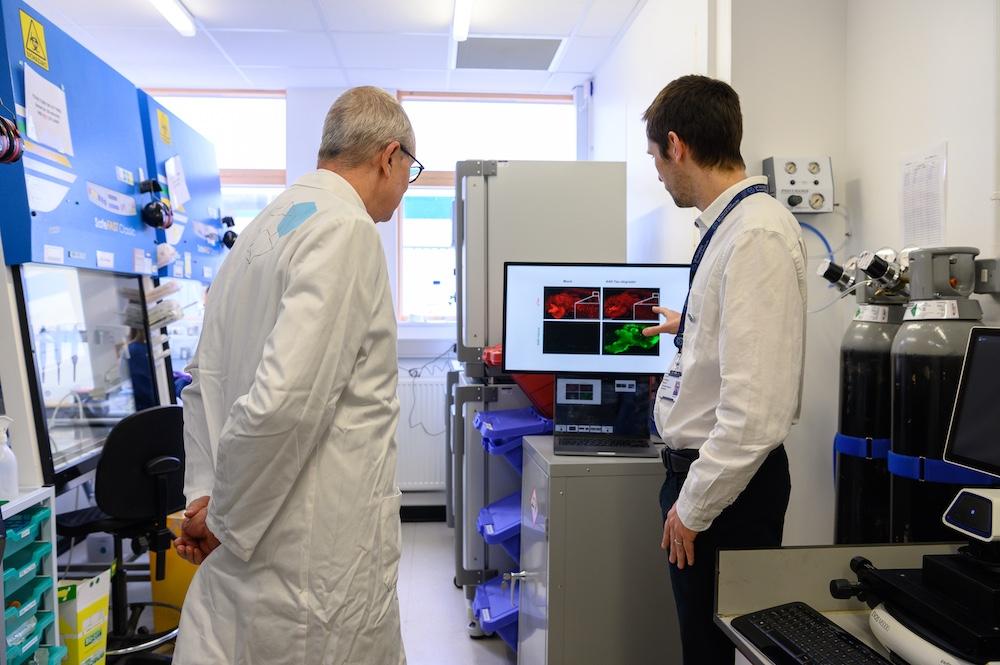
Prof Will McEwan discussed his research with Minister Vallance
Science Minister Lord Vallance said:
“Few people in the UK will go through life untouched by the impact of dementia - whether through a personal diagnosis or in caring for, or coming to terms with, its effect on a loved one.
“We must therefore grasp the opportunities that science and technology offers in getting people the early and effective diagnosis they need to continue living fulfilled lives while reducing the pressure on hospitals.
“Whether it involves advanced blood tests or home AI tools and much more besides, we’re setting a clear, measurable and ambitious target, challenging researchers to drive forward potentially game-changing discoveries to transform the lives of people across our country while building an NHS fit for the future and growing our economy.”
Health Minister Dr Zubir Ahmed said:
"For too long, our health system has struggled to support those with complex needs, including the one million people living with dementia. This ambitious challenge represents a crucial step forward in our mission to build an NHS fit for the future.
"By harnessing the power of innovation to diagnose dementia faster and more accurately, we can ensure patients and their families get the support they need earlier, when it can make the greatest difference.
“Together, we will transform how we approach dementia care and give millions of people the chance of a better quality of life."
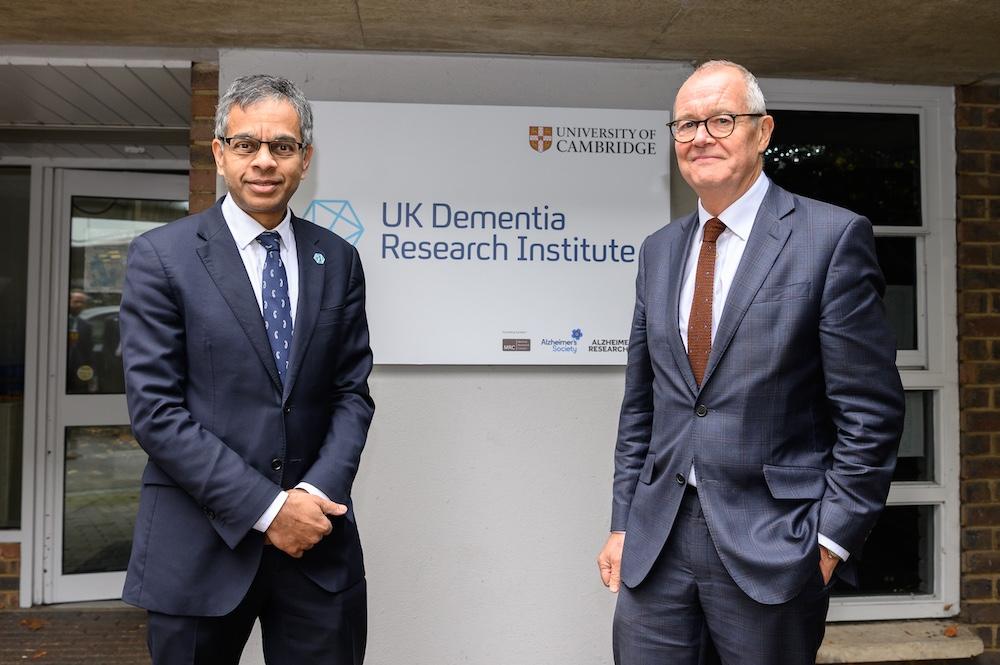
Prof Chandran and Minister Vallance
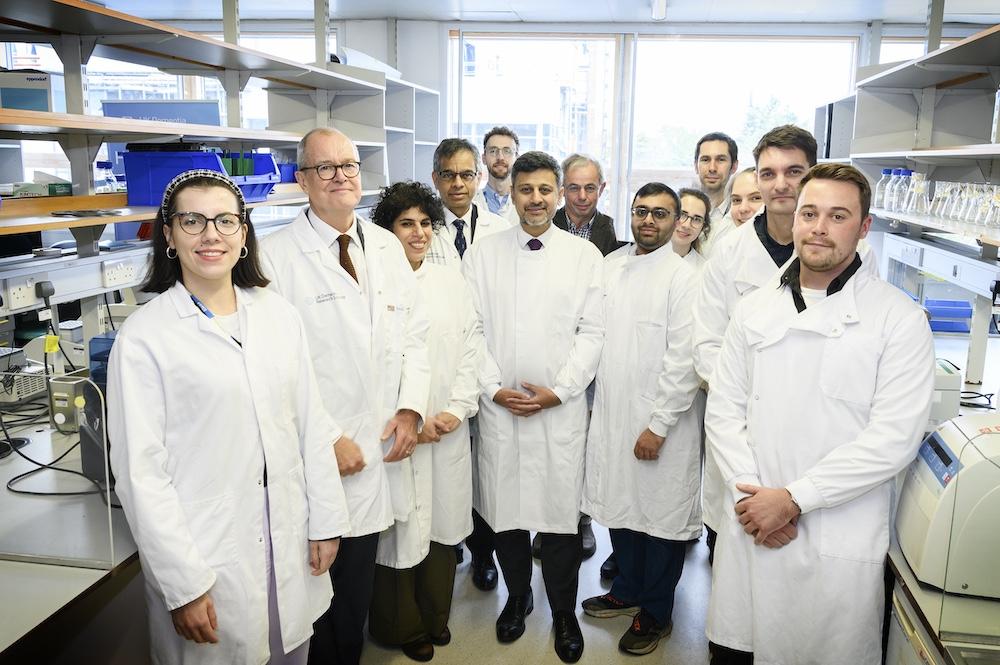
The Ministers met with a group of ECRs at the end of their lab tour
Prof Siddharthan Chandran, UK DRI Director, said:
“As a practising neurologist, I see first-hand the devastating impact that a long delay for diagnosis can have on an individual and their family. We’re now at an inflection point. The next five years will see a revolution in both therapeutics and diagnostics for dementia, and we’re already seeing the beginnings of that transformation today.
“Precise, early diagnosis isn’t just about giving people information, it’s about giving them agency, choice, and crucially, access to emerging clinical trials and treatments that offer real hope to slow down or stop these conditions. But we must ensure these advances reach all corners of society, through simple blood tests at the GP, digital assessments on your phone, and smart technology seamlessly woven into daily life.
“The UK has, arguably, the greatest cluster of world-leading researchers in this space, working in some of the best universities in the world, in partnership with industry and our NHS. This ambitious commitment will enable these brilliant scientists and clinicians to deliver the breakthroughs in tomorrow’s diagnostics that will transform the lives of people living with and at risk of dementia."
Professor Mina Ryten, Centre Director of the UK DRI at Cambridge said:
“We are honoured to welcome the Ministers for Science and Health Innovation to UK DRI at Cambridge. The Government’s challenge-led plan for R&D is welcome news. This plan will support research that transforms the future of dementia diagnosis, ensuring people with dementia and their carers receive earlier, more accurate diagnoses and timely support.
“By backing innovative health research being pioneered in the UK, we can accelerate the development of the tools, tests and treatments that will transform outcomes for people living with dementia.”
Professor David Sharp, Centre Director, UK DRI Centre for Care Research and Technology said:
“Our research aims to transform dementia care by maximising the potential of smart technology to support at-home care and allow people to remain in their own home for longer, by identifying problems earlier.
“Innovative research is essential to enabling the much-needed shift toward preventative, community and home-based care by developing radical new approaches to dementia care: one that is anchored in the hospital but reaches out into people’s homes, with the aim of delivering cost-effective care that promotes independence, reduces hospital admissions and improves quality of life for people living with dementia right now, and in the future.”
